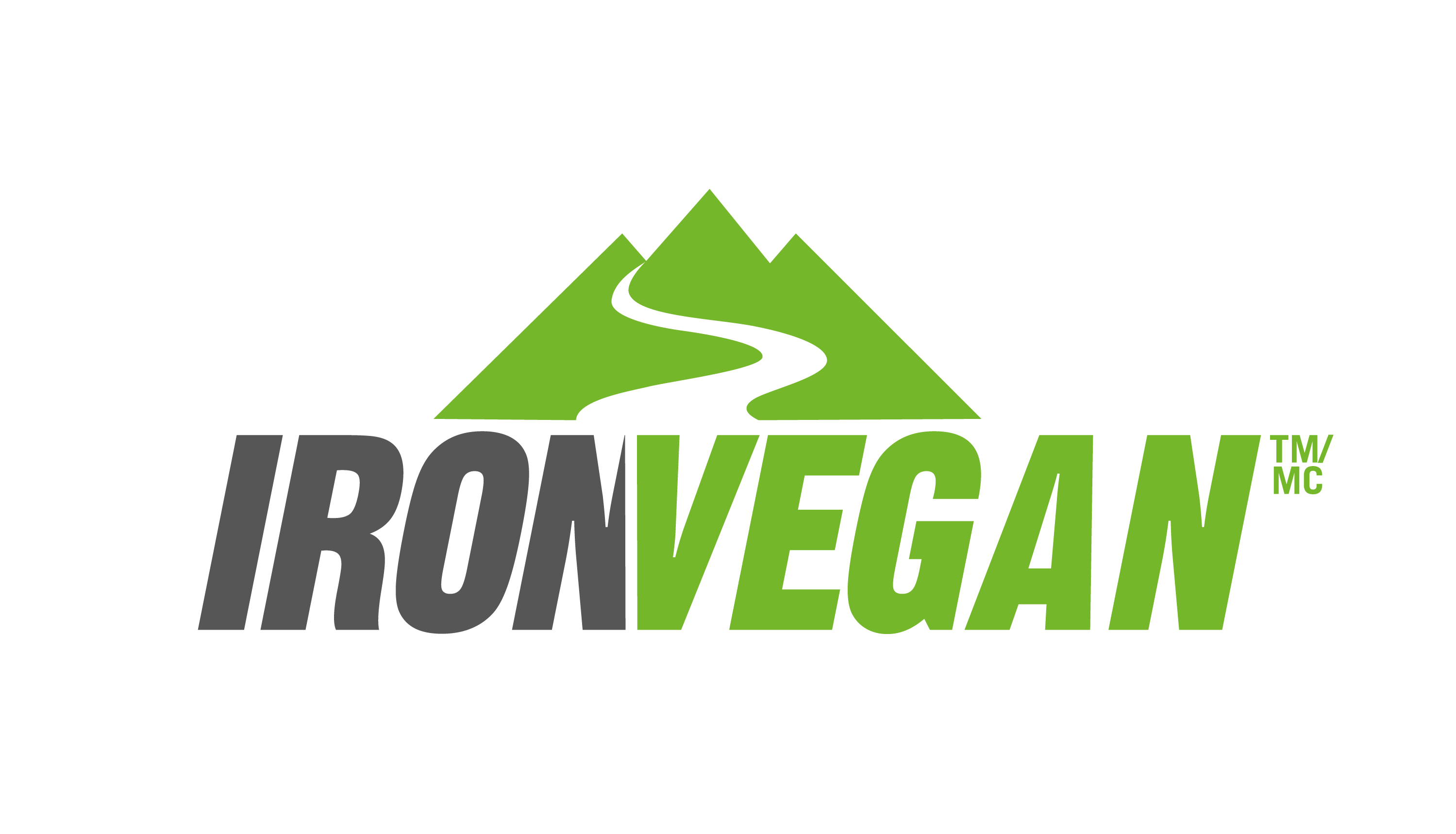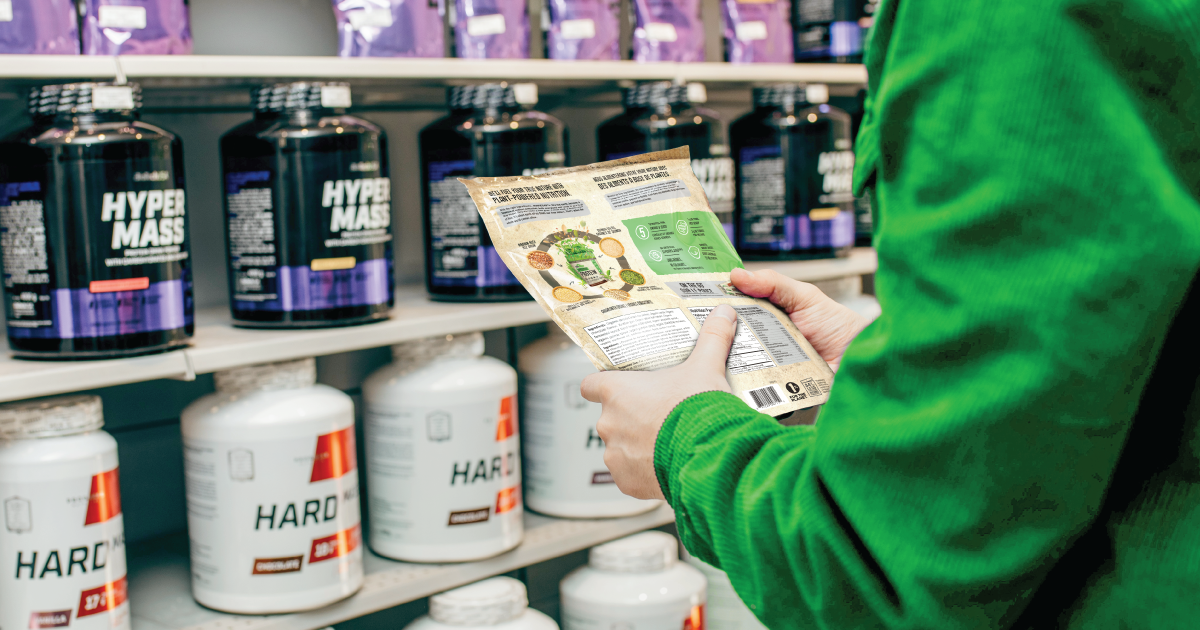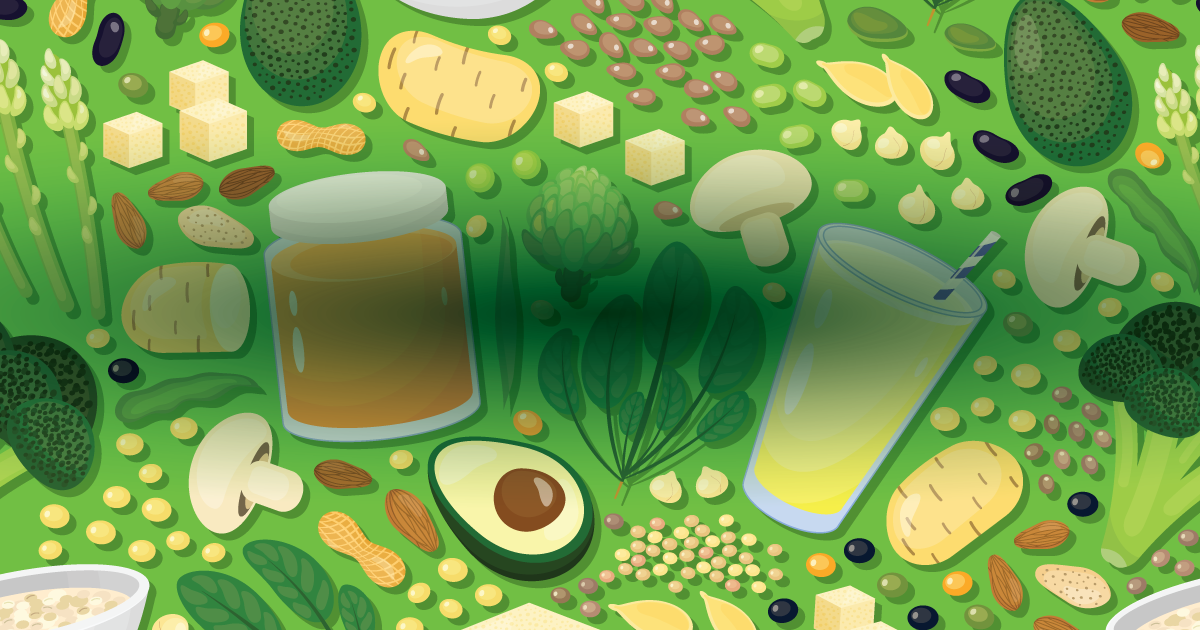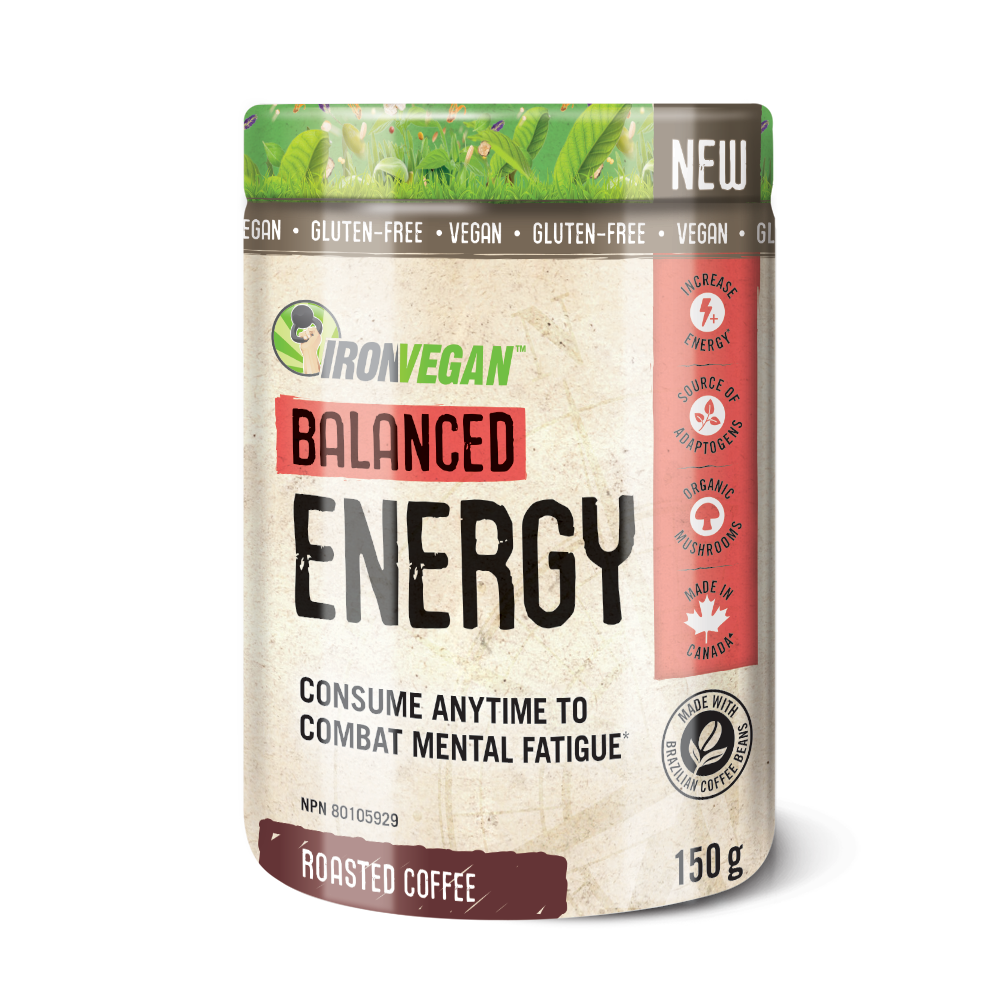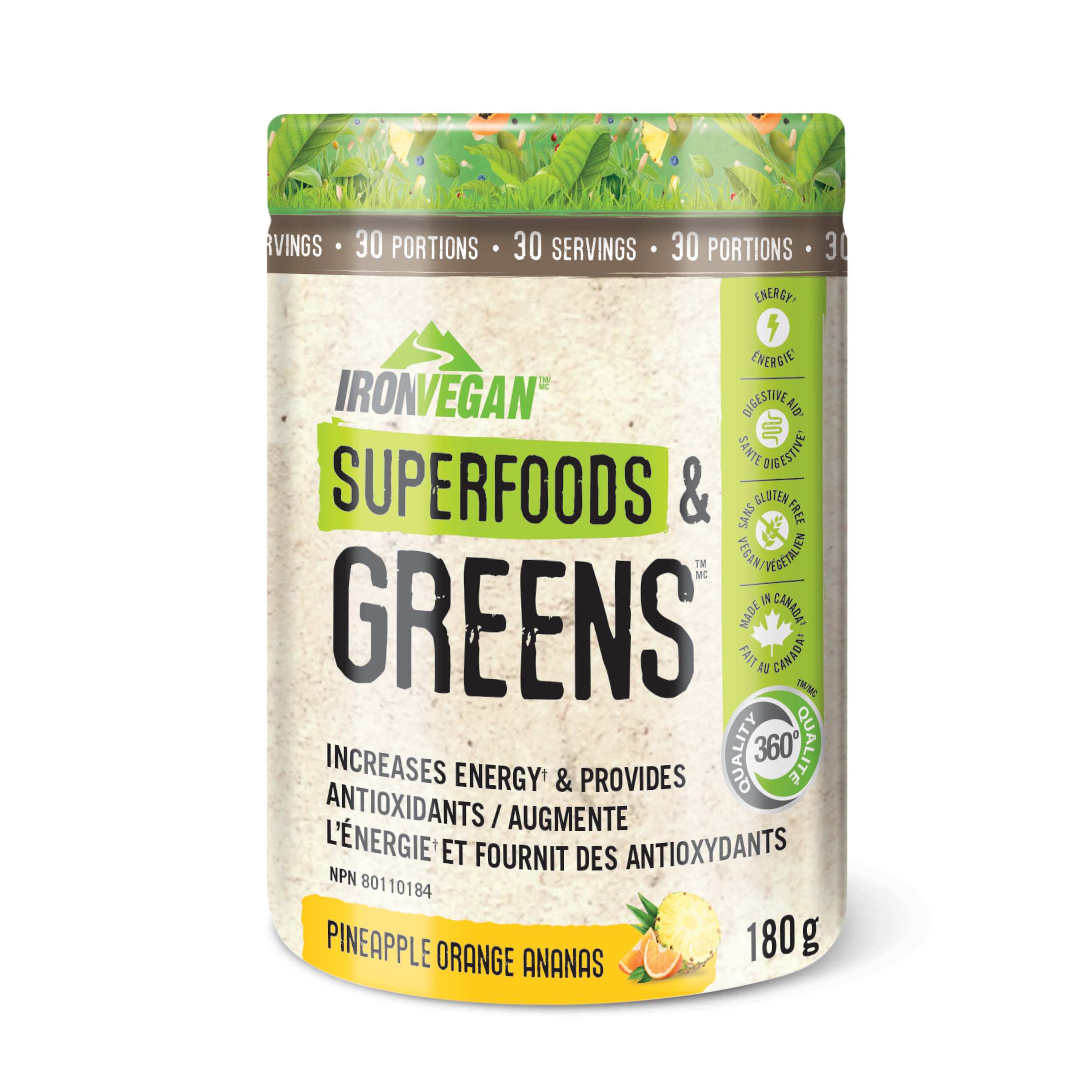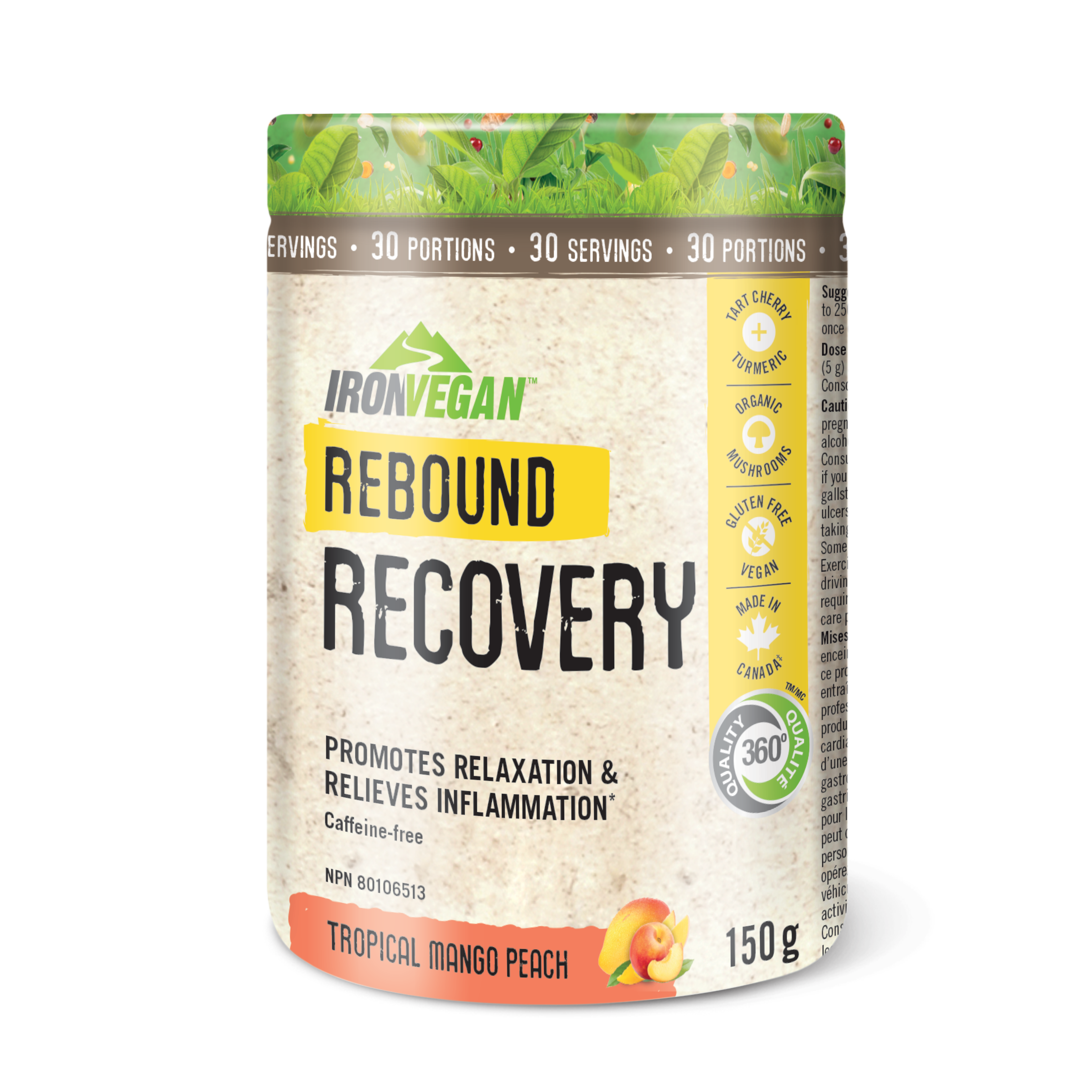Written by Iron Vegan
So, you’re ready to up your intake of plant foods? Great! Here are a few things to keep in mind. Remember that you need not label yourself or radically change your eating habits overnight. You can simply begin transitioning to eating more plant foods at any time and any point in your life. Anyone, at any age, regardless of lifestyle can benefit from adding more plant foods into their diet!
Eat Real Food
When shopping look for real, natural whole foods. This is what whole-food plant-based eating revolves around. There are a lot of unhealthy, processed packaged foods labeled as “vegetarian” or “vegan” – steer clear! They offer very little nutritional value and are oftentimes full of artificial ingredients. If you do opt for packaged foods, be sure to read the labels and check ingredients. The rule of thumb being if you don’t know what an ingredient is (or can’t pronounce it) it’s likely a sign that it’s not naturally derived and is therefore not good for you. Stick to the natural sections of your grocery store to find the best options. Remember, the less packaging the better – think of the produce section!
Plan Ahead
Whenever possible, plan for your outing. If you’re going out, bring snacks so that you have healthy options wherever you go. Some places may not offer great options, so by planning ahead and preparing something before you leave your home will ensure that you eat well even on-the-go. Some great options are cut veggies with hummus, whole fruit, and protein bars.
Dining Out
If you plan to eat out, check the menu ahead of time so that you can be sure there are wholesome plant-based options available. Look for vegetarian/vegan friendly restaurants and cafés – there are many apps that can help with this (HappyCow is one example).
Supplement to Fill in the Gaps
Be mindful of eating a wide variety of foods, including veggies, fruits, nuts, seeds, legumes, and whole grains, and consider taking health supplements for nutrients that you might be lacking in your diet. Consult with your health care practitioner to determine if supplementation is right for you. You can have your bloodwork checked to identify any possible deficiencies and begin a supplement regime unique to your needs.
Health Supplements to Consider
A well-planned plant-based diet can meet caloric needs. However, depending on activity levels and the robustness of one’s diet, some might find it challenging to eat enough nutrient-rich or fortified foods to meet their daily nutrient requirements. In this case, the following supplements can be very beneficial to include as part of one’s dietary regimen:
Vitamin B12Cobalamin (vitamin B12) is essential for normal nervous system function, homocysteine metabolism and DNA synthesis.1 Insufficient vitamin B12 can lead to changes to the blood cells and the development of hematological and neurological symptoms, such as anemia and neuropathy.1 Since B12 is found almost exclusively in animal products, many vegans and vegetarians will rely on foods high in B12, like nutritional yeast, fortified foods like non-dairy milks (almond, coconut, oat, etc.) and/or need to get their dose of B12 with a dietary supplement.2
Omega-3 Fatty AcidOmega-3 fatty acids EPA (eicosapentaenoic acid) and DHA (docosahexaenoic acid) (DHA) contribute to brain and heart health.3 These fatty acids are important for normal growth and development and appear to play an important role in cardiovascular health, in inflammatory and chronic disease.1 Fatty fish is an excellent source of Omega-3 fatty acids, but for those following a plant-based diet, they can easily reach adequate levels by consuming foods like walnuts, seaweed, flax, chia and hemp seed, and walnut, flax and hemp oils3. Those who cannot meet their requirements, and people that experience high levels of inflammation would benefit from taking an Omega-3 supplement like algae oil.4 Plant-based athletes may also consider DHA-rich microalgae supplements, which are well-absorbed and increase DHA and EPA concentrations in the blood.5
IronIron is a functional component of oxygen transport and energy production and plays a critical role in growth and development.6 Dietary iron occurs in 2 forms: heme (refers to iron from animal sources) and non-heme (accounts for all other types).6 An insufficient consumption (or absorption) of iron can lead to anemia, and cause symptoms like tiredness, fatigue, weakness, and reduced exercise tolerance.1 Because the bioavailability of iron in plant-based diets is lower than in omnivorous diets, vegans should consume 1.8 times the amount of iron consumed by non-vegans.1,7 Good plant-based sources of iron include dried beans, dark leafy green vegetables and fortified foods like non-dairy milks.7 Those who cannot meet iron requirements from diet alone, and particularly females, whose requirements are higher due to loss of iron during menstruation, should consider taking an iron supplement.8
ProteinProtein is the major structural component of all cells in the body, and is important for everyone, regardless of age, diet, or lifestyle.9 Protein is made up of smaller organic compounds called amino acids, which are required for many functions in the body, including muscle growth and repair.9 Protein requirements vary from person to person, especially for those that lead an active lifestyle, as their body will need more to support their activity levels and energy requirements.10 Protein requirements can be met if a variety of plant proteins are consumed, like tofu, tempeh, edamame, quinoa, chia seeds and beans; however, protein supplements are an easy and convenient way to help meet dietary needs, plus many provide additional ingredients to help further support performance and recovery.7
MultivitaminA daily multivitamin can play an important role when nutritional requirements are not met through diet alone – especially for individuals who are pregnant, older in age, have malabsorption conditions, and those taking certain medications.11 It will help fill in any nutritional gaps to ensure you’re getting a hint of the vast array of healthful nutrients and chemicals naturally found in found.11 We like to use the analogy of building a house – if you don’t have a solid foundation in place, you will not be able to build a quality house. Think of a multivitamin as the foundation to health!
References:
- Rogerson D. (2017). Vegan diets: practical advice for athletes and exercisers. J Int Soc Sports Nutr, 14(36).
- HealthLinkBC. Quick Nutrition Check for Vitamin 12. Accessed March 22, 2021 at: https://www.healthlinkbc.ca/healthy-eating/vitamin-b12
- Physicians Committee for Responsible Medicine. Omega-3 Fatty Acids and Plant-Based Diets. Accessed March 23, 2021 at: https://www.pcrm.org/good-nutrition/nutrition-information/omega-3
- Healthline. What Is Algae Oil, and Why Do People Take It? Accessed March 23, 2021 at: https://www.healthline.com/nutrition/algae-oil#bottom-line
- Gatorade Sports Science Institute. Diets for Athletic Training and Performance. Accessed March 22, 2021 at: https://www.gssiweb.org/sports-science-exchange/article/vegetarian-and-vegan-diets-for-athletic-training-and-performance
- Alaunyte I, Stojceska, V, Plunkett A. (2015). Iron and the female athlete: a review of dietary treatment methods for improving iron status and exercise performance. J Int Soc Sports Nutr, 12(38).
- IntechOpen. Veganism: A New Approach to Health. Accessed March 22, 2021 at: https://www.intechopen.com/online-first/veganism-a-new-approach-to-health
-
Gaudiana Clinic. Iron Deficiency in Athletes. Accessed March 24, 2021 at: https://www.gaudianiclinic.com/gaudiani-clinic-blog/2018/8/29/iron-deficiency-in-athletes
9. Wu G. (2016). Dietary protein intake and human health. Food Funct, 7(3): 1251-1265. - Fuhrman J, Ferreri, D. (2010). Fueling the vegetarian (vegan) athlete. Curr. Sports Med. Rep, 9(4): 233-241.
- Harvard School of Public Health. Should I Take a Daily Multivitamin? Accessed March 24 at: https://www.hsph.harvard.edu/nutritionsource/multivitamin/
